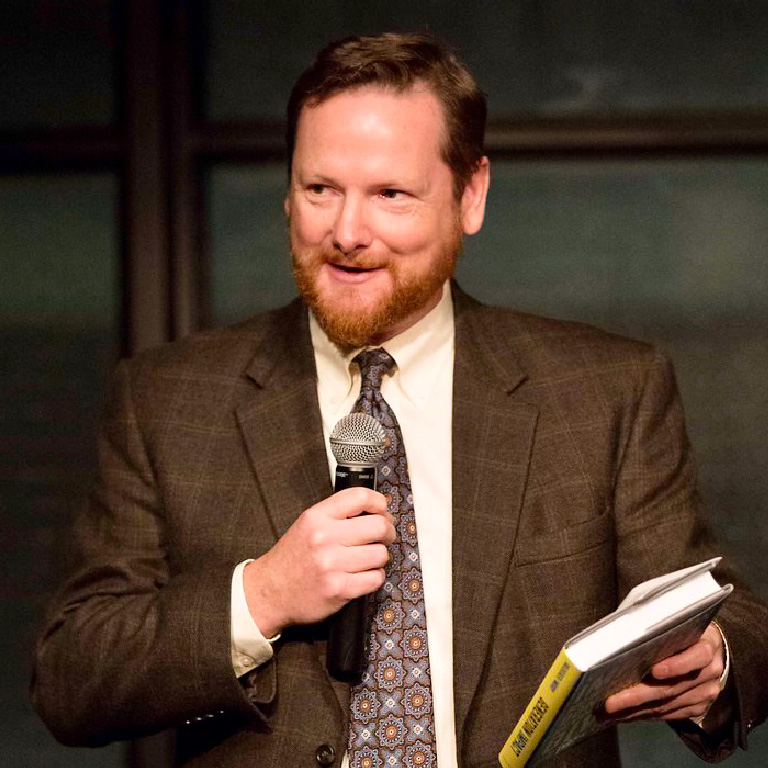Biography
Michael Moody, Ph.D., is Professor of Philanthropic Studies at the Lilly Family School of Philanthropy at Indiana University, Indianapolis. Prior to this, for 13 years, he served as the first holder of the Frey Foundation Chair for Family Philanthropy at the Dorothy A. Johnson Center for Philanthropy at Grand Valley State University, in Grand Rapids, Michigan. He has also held faculty positions at Boston University and University of Southern California.
Dr. Moody serves as an accessible guide to the rapidly evolving and complex world of philanthropy and social innovation, helping diverse audiences see the vital role that giving plays in society and in their own lived experiences. Trained as a cultural sociologist with a special emphasis on philanthropic theory and ethics, he has been actively working to understand and improve philanthropy and nonprofit organizations for nearly 35 years, often by actively bridging scholarship and professional practice.
Dr. Moody is co-author of the books Understanding Philanthropy: Its Meaning and Mission (with Robert Payton), The Philanthropy Reader (with Beth Breeze), and Generation Impact: How Next Gen Donors Are Revolutionizing Giving (with Sharna Goldseker), as well as many other publications for both scholarly and practitioner audiences. His books have won major awards, been produced as audiobooks, been translated into several languages, and been featured as best-sellers in the philanthropy category. His research and theoretical writing has been published in Nonprofit and Voluntary Sector Quarterly, Nonprofit Management and Leadership, The Foundation Review, Sociological Theory, and several prominent edited volumes. This scholarship focuses on topics such as the theory and social role of philanthropy, ethical challenges in giving, Gen X and Millennial giving, family foundations, donor learning, venture philanthropy, the notion of “giving back,” and nonprofits’ debates about the public good, and many other topics.
Dr. Moody is a frequent speaker at venues across the U.S. and worldwide, and a sought-after commentator on philanthropic trends and research. He has given hundreds of speeches reaching thousands of philanthropic and nonprofit professionals as well as scholars. His work has been featured in the New York Times, Washington Post, Forbes, Chronicle of Philanthropy, Stanford Social Innovation Review, Alliance, and many other outlets, and he frequently writes essays and reports that are widely read and cited by practitioners in the field. In addition to extensive university teaching experience, Dr. Moody has developed and taught numerous professional education courses, especially for grantmakers and donors.
Dr. Moody earned a bachelor’s in psychology from Indiana University in Bloomington, and then became one of the first employees of the university’s Center on Philanthropy, where he supported the development of many of the early research and teaching programs that have now flourished into the Lilly Family School of Philanthropy. He went on to receive a master’s in social science from the University of Chicago. In addition to his previous faculty roles, Dr. Moody founded and led Moody Philanthropic Consulting. His current volunteer service includes the Editorial Board for the Georgetown Studies in Philanthropy, Nonprofits, and Nongovernmental Organizations book series, and the Board of Directors for the national nonprofit, Family Promise.
Education
- Ph.D. Sociology, Princeton University, 2002
- M.A. Social Science, University of Chicago, 1993
- B.A. Psychology, Indiana University, with Highest Distinction, 1989
Courses Taught
- PHST-P 301 The History of and Contemporary Approaches to Philanthropy
- PHST-P 521 Nonprofit and Voluntary Sector
Publications
Books:
Articles:
- Nick Tedesco and Michael Moody. 2022. “The Future of Family Philanthropy.” Stanford Social Innovation Review. Online. September 12.
- Michael Moody and Sharna Goldseker. 2021. “Beyond Giving: Generation Impact and the Crises of 2020.” Alliance Magazine. Online. October 21.
- Michael Moody and Danielle LaJoie. 2020. “How Family Giving Can Bring About the Change America Needs Now.” Chronicle of Philanthropy. Online. October 14.
- Michael Moody and Sharna Goldseker. 2018. “It’s All About the Relationship: How Nonprofits Can Better Engage Next Gen Donors.” Nonprofit Quarterly. Online. January 25.
- Sharna Goldseker and Michael Moody. 2017. “Show Me the Impact.” Stanford Social Innovation Review. Online. November 13.
- Michael Moody, Laura Littlepage, and Naveed Paydar. 2015. “Measuring Social Return on Investment: Lessons from Organizational Implementation of SROI in the Netherlands and the United States.” Nonprofit Management and Leadership 26 (1): 19-37.
- Michael Moody. 2014. “Voluntary Action for the Public Good?: Faculty Work and the Broad Definition of Philanthropy.” Pp. 19-30, in Genevieve G. Shaker, ed. Faculty Work and the Public Good:
- Philanthropy, Engagement, and Academic Professionalism. New York: Teachers College Press.
- Amy Clarke, Ben Eyre, Sharna Goldseker, and Michael Moody. 2013. “What Do the Next Generation of Major Donors Want?” Alliance Magazine. 18 (4, December): 29-33.
- Sharna Goldseker and Michael Moody. 2013. “Young Wealthy Donors Bring Taste for Risk, Hands-On Involvement in Philanthropy.” Chronicle of Philanthropy. Online. May 23.
- Michael Moody, Allison Lugo Knapp, and Marlene Corrado. 2012. “What Is a Family Foundation?” The Foundation Review 3 (4): 47-61.
- Michael Moody. 2011. “A Hippocratic Oath for Philanthropists.” Pp. 143-165, in Donelson R. Forsyth and Crystal L. Hoyt, eds. For the Greater Good of All: Perspectives on Individualism, Society, and Leadership. New York: Palgrave Macmillan.
- Michael Moody. 2009. “‘Everyone Will Get Better Together’: How Those Responsible for California’s Bay-Delta Water System Understand Collaboration.” International Review of Public Administration 13 (4): 13-32.
- Reprinted: Jung, Yong-duck, Daniel Mazmanian, and Shui-Yan Tang, eds. 2009. Collaborative Governance in the United States and Korea. Seoul: Seoul National University Press, pp. 21-55.
- Michael Moody. 2008. “Serial Reciprocity: A Preliminary Statement.” Sociological Theory 26 (2): 130-151.
- Michael Moody. 2008. “‘Building a Culture’: The Construction and Evolution of Venture Philanthropy as a New Organizational Field.” Nonprofit and Voluntary Sector Quarterly 37 (2): 324-352.
- Chinese translation: Journal of Comparative Economic and Social Systems4 (August). 2010.
Research Interests
- Theories of philanthropy
- Philanthropic ethics
- Philanthropic culture
- Donor learning
- Family and next generation philanthropy
- History and practice of philanthropic studies
Honors and Awards
- Association of Fundraising Professionals/Skystone Partners Prize for Research on Fundraising and Philanthropy [shared with Sharna Goldseker], 2019



